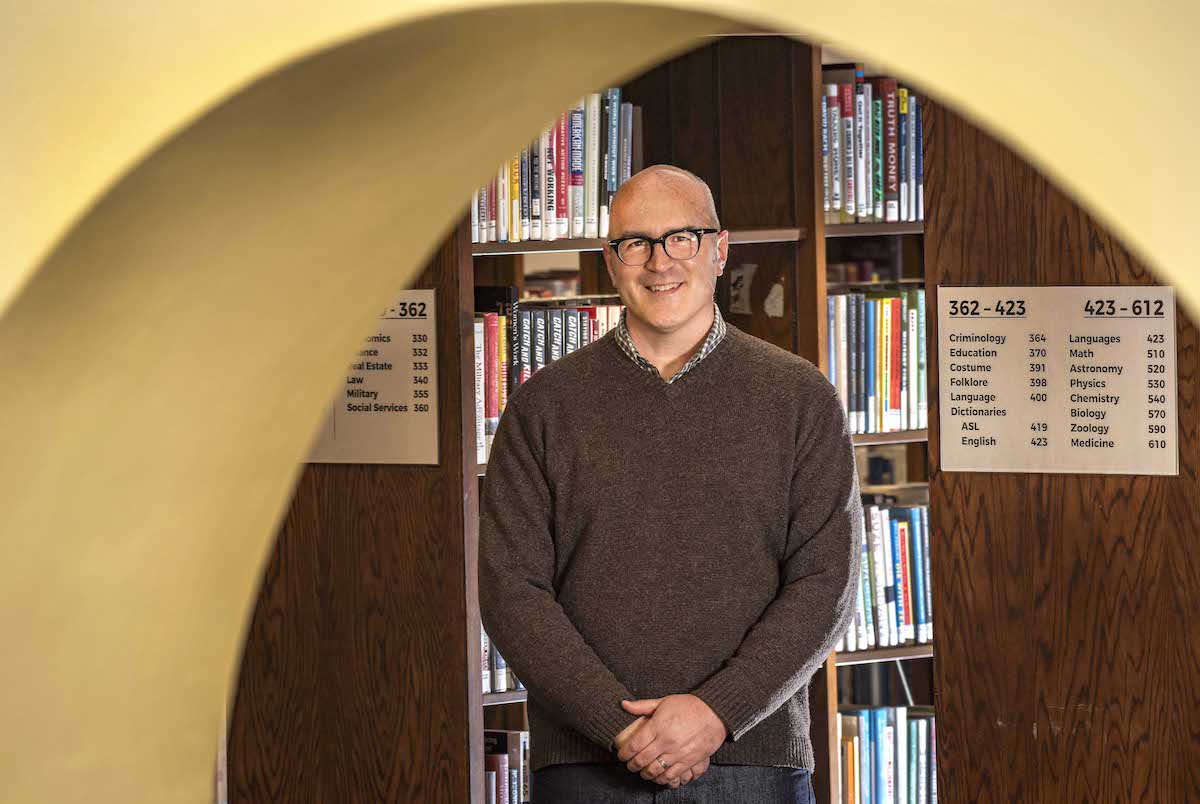The Challenges — and Successes — of Learning English Remotely
Admiring Adult Literacy Programs at the Santa Barbara Public Library

Pivoting, but still paving the way to knowledge, despite budget cuts and so many services shut down during the pandemic, the Santa Barbara Public Library’s Adult Education Programs have found creative ways to provide service during the past year. I recently joined the City Library Advisory Board and was impressed with all of the free programs they still offer, despite their physical doors being closed to the public.
Headed by Devon Cahill, an adult education librarian and former volunteer tutor, the Adult Literacy Program trains volunteers to work one-to-one with learners to help them achieve language literacy and other adult education goals. Prior to the pandemic, the tutor-learner pairs would meet up at the library to work on their language skills together. Since last spring, they’ve switched to 100 percent remote and have about 50 tutor-learner pairs working together.
Though it’s challenging, Cahill said that pandemic learning has been a success. Grants provided funding for Chromebooks and Wi-Fi hotspots for those that needed them. “Our success rate normally is over 90 percent with learners reaching the literacy goals that they have set,” he said. “During the pandemic, we’re working with fewer learners and tutors, but our success rate has gone almost up to 100 percent —it was at 98 percent last quarter.”
Get the top stories in your inbox by signing up for our daily newsletter, Indy Today.
Rachel Altman, a retired grant writer, has been a tutor for the past four years, working the entire time with Cecilia, a native Spanish speaker. Part of Cecilia’s motivation is that she works as a housecleaner and her employers want to be able to leave her written instructions. In addition, she is in her fifties and would like to be able to find less physically demanding work eventually, explained Altman, who was partially motivated to volunteer because her own parents were immigrants who learned English as a second language.
The two women meet for about an hour twice a week (one hour a week is the minimum requirement). They are currently meeting by phone, which is a bit more challenging than in person or on Zoom, but Cecilia is not computer savvy. Rather than read side-by-side, Altman mails materials to Cecilia from the variety of resources the library offers. “She’s very interested in history and current events,” Altman said.
While being apart isn’t ideal, there are some upsides. “I think the biggest advantage to the phone is we talk more … and she needs to practice more conversational English,” said Altman. “It seems like the phone allows for that a little more, rather than just going right to the book.”
Improving her conversational English was also one of the reasons Sebnem Vural joined the program about a year ago. “I have always struggled with my English pronunciation in the past, so I decided that it would be a good idea to obtain an environment where I could hear the language more often,” said the native Turkish speaker. “I’ve had tons of people supporting me and encouraging me all throughout my journey. I can’t explain how helpful this program was.”
The tutors go through eight hours of initial training, with an emphasis on a learner-centered peer tutor approach, patience, cultural competency, and empathy. The nuts and bolts of how to help a learner achieve their goals depend on the person and what they want from the program. Learners’ goals run the gamut, Cahill explained, from being able to read a story to their children or help with homework to passing a citizenship test or getting a GED or driver’s license to shopping at a retail store, improving digital literacy, or being able to read and write in graduate school in a second language.
Being able to read to kids or talk to their teachers is a common goal, said Cahill. Malena Mackinlay, whose first language is Spanish, joined the program about four months ago. “I’ve always found motivation in wanting to be able to communicate in English, but my one-year-old granddaughter inspired me to continue learning,” she said. “My experience has been amazing. I got the best tutor, and I’m finally able to enjoy each of my lessons.”
Working remotely has been a plus in some cases, Cahill said. He’s been able to record his Zoom tutor trainings, so if someone isn’t able to attend, they can make it up later. In addition, “Sometimes that one hour a week that the tutor and learner meet is the only hour that that learner has to work on their English because they’re so busy working multiple jobs or caring for kids,” he said. “This really frees up all that extra time it would take for the tutor or the learner to get back and forth to the library.” He anticipates they will continue to offer a hybrid option for training and tutoring sessions when the pandemic is over.
Library technicians also run weekly English and Spanish conversation groups, which are open to all learners, with no registration required.
To learn more, call (805) 564-5619 (English) or (805) 962-7653 #3 (Spanish), email literacy@santabarbaraca.gov, or visit santabarbaraca.gov.



